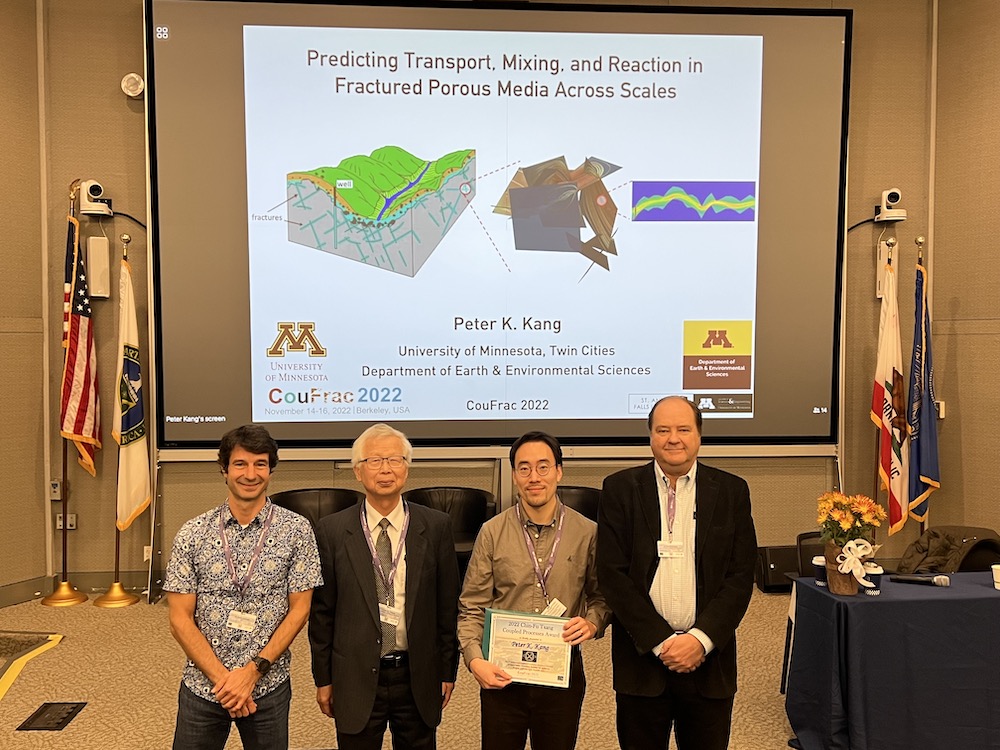Berkeley Lab Research Scientist Mengsu Hu led the CouFrac 2022 conference along with Berkeley Lab Senior Scientists Carl Steefel and Jonny Rutqvist to explore the exciting new advances in all areas of coupled processes associated with fractured geological media.
The conference was the result of 11 months of effort and preparation by these Berkeley Lab co-chairs, who were joined in their efforts by Ki-Bok Min (Seoul National University), Antonio Pio Rinaldi (ETH Zürich), Pengzhi Pan (Institute of Rock and Soil Mechanics, CAS), Hideaki Yasuhara (Ehime University), and 43 organizing committee members and session conveners. The conference was a great success, with 256 participants (including 150 onsite and 106 online) from 32 countries and regions.
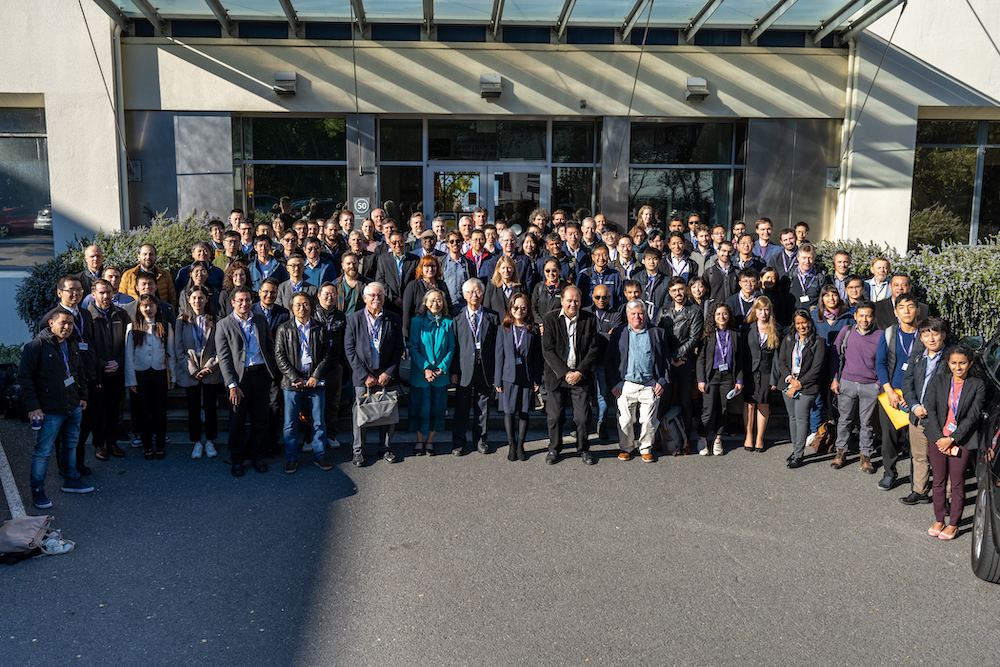
The conference included a discussion of “Carbon Neutrality” with panel members Derek Elsworth, Dongxiao Zhang, Maurice Dusseault, Hajime Yamamoto, Ranjith Gamage. Also included were six keynote lectures given by Chin-Fu Tsang, Wenlu Zhu, Janos Urai, Mark Zoback, Patrick Selvadurai, and Jishan Liu, and seven Distinguished Invited Lectures given by Christopher Spiers, David Nolte, Hari Viswanathan, Hongkyu Yoon, Yuxing Ben, Gregory Beroza and Nantheera Anantrasirichai. Peter Kang from University of Minnesota gave the Chin-Fu Tsang Award Lecture, and Cyprien Soulaine, Anna Suzuki, Xuhai Tang, Sehyeok Park, Harrison Lisabeth, and Luke P. Frash gave Emerging Scientist Plenary Lectures. Berkeley Lab Affiliate Scientist Tim Kneafsey delivered a Distinguished Banquet Speech highlighting personal and professional experiences in investigating coupled processes.
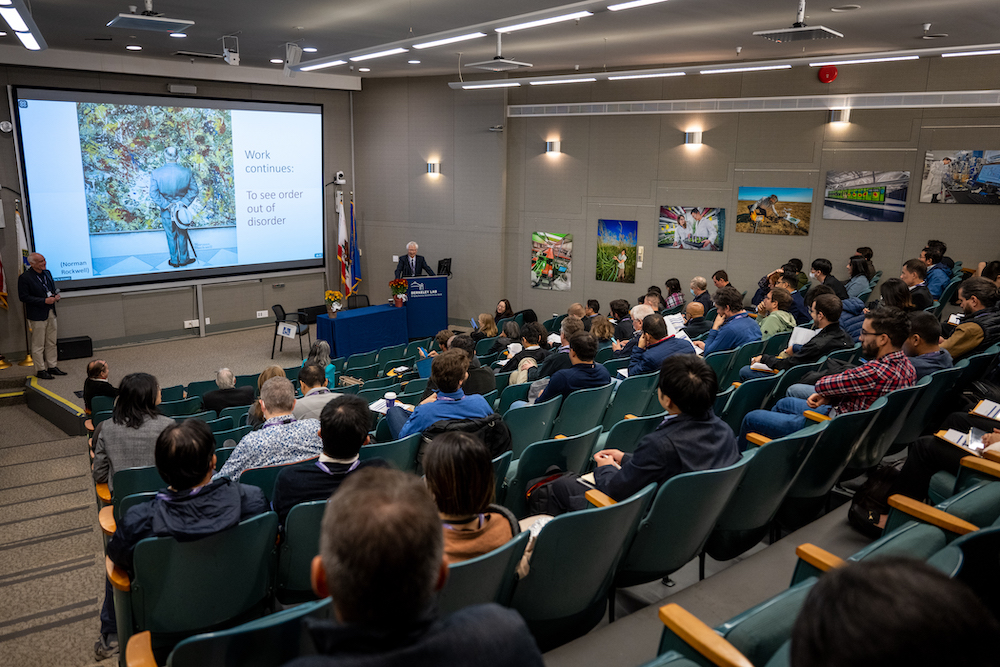
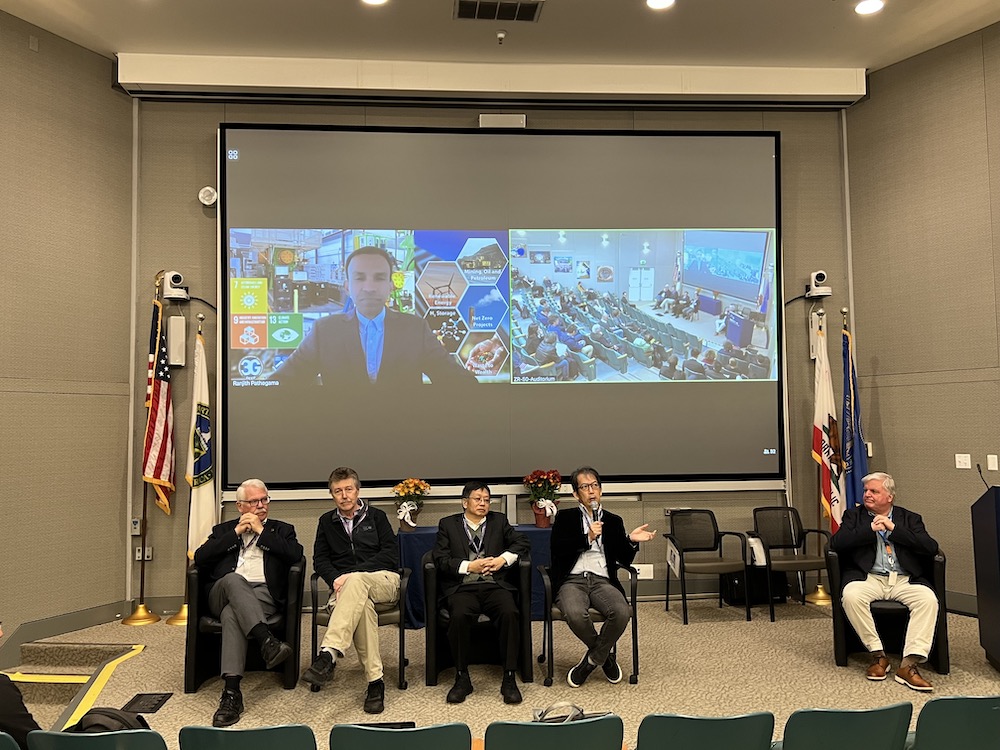
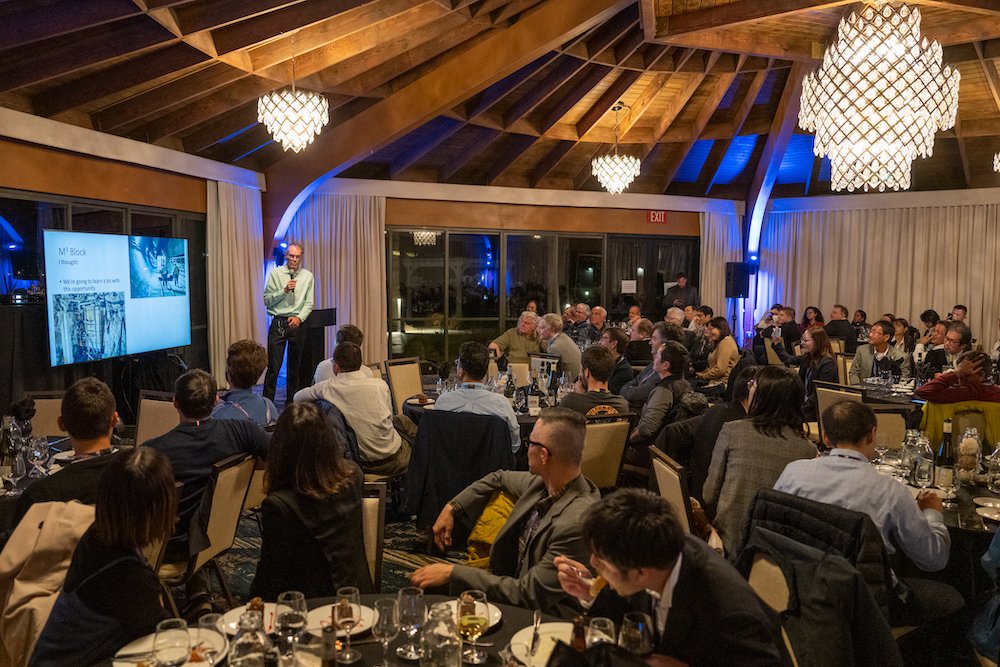
The conference included 24 technical sessions with 118 talks (including 7 invited lectures), 6 virtual poster sessions with 44 virtual posters, and an onsite poster session with 26 posters. The conference program covered a wide range of classic topics relevant to coupled processes in fractured media, including numerical modeling, lab tests, field tests, hydraulic fracturing, flow and transport, induced seismicity, geothermal energy, nuclear waste disposal, and carbon sequestration. In addition, several sessions new to CouFrac2022 were developed by the organizing committee members and session conveners, including machine learning, hydrogen storage, Earth’s critical zone, shearing of fractures, reactive transport, salt mechanics and science, and clay and shale.
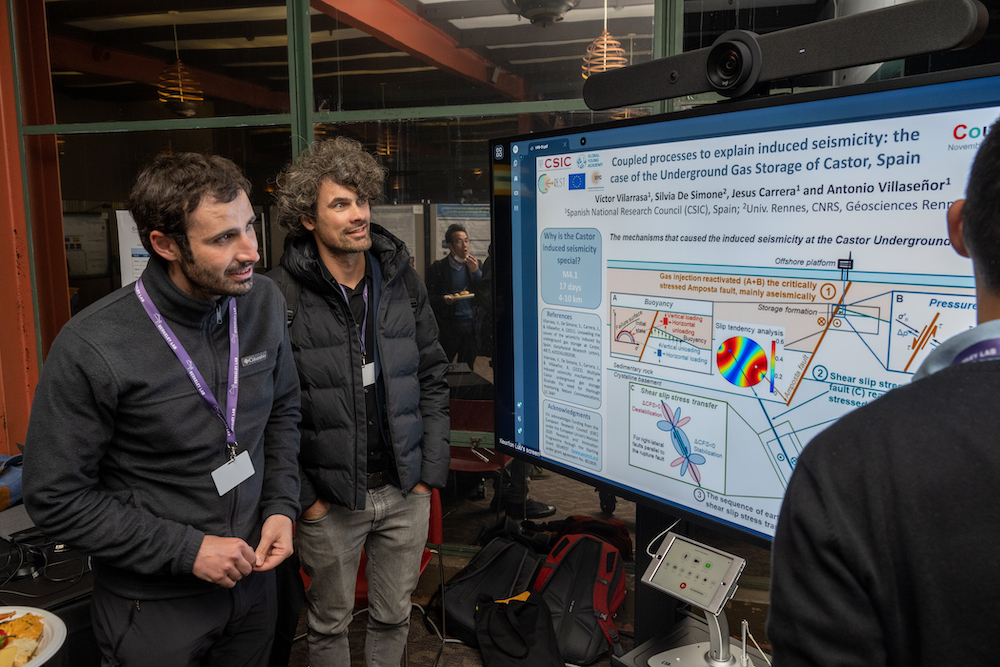
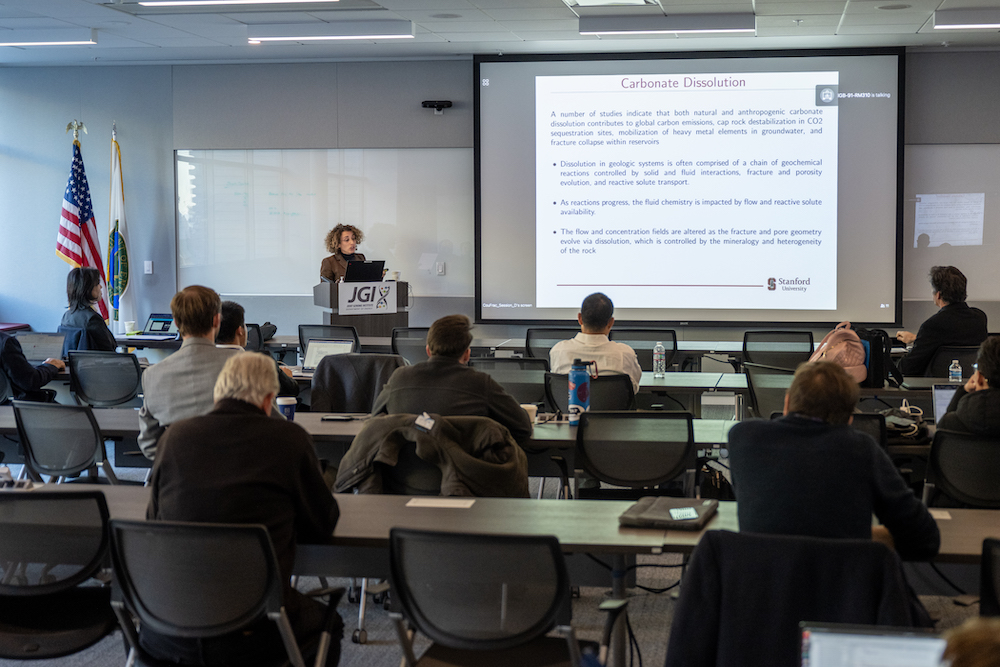
The 2022 Chin-Fu Tsang Coupled Processes Award named after Berkeley Lab Senior Scientist Emeritus Chin-Fu Tsang was given to Peter K. Kang of the University of Minnesota who was selected from among 12 outstanding international nominees. The Chin-Fu Tsang Award, which will be given at all subsequent CouFrac conferences, was created to recognize outstanding contributions from early career geoscientists investigating thermal-hydrological-mechanical-chemical (THMC) coupling in fractured rock.
